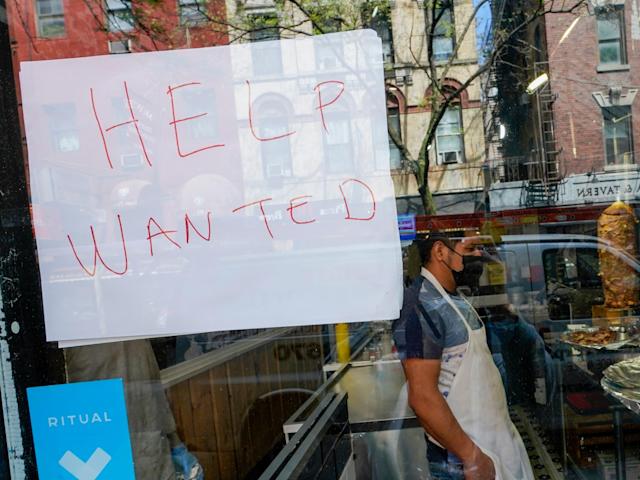Is America Plugging the Labor Shortage with Children?
November 4, 2021
Most students at Winthrop High are no strangers to the working world. In fact, a good majority of the student body has a part-time job and has been working for a few years. While getting a job as a teenager is normal and a helpful experience for some to learn how to socialize and make smart financial decisions, some states seem to be taking things too far.
In the state of MA, children under the age of 14 are not permitted to have a full-time or even part-time job unless under limited circumstances and with working papers. Older children under the age of 18, however, are permitted to work, though some businesses are required to submit Youth Employment Permits. The state mandates that minors not work more than 18 hours a school week or more than 6 shifts. This is due to the fact that the state is attempting to prioritize education over temporary work experience. While many of us may be fortunate enough to have employers that follow these guidelines, states like Wisconsin seem to be looking the other way. In light of the labor shortage, the state’s politicians are looking to plug the problem at its source with a special resource: children.
Many kids nowadays want a job to gain some experience and earn their own money separate from their parents, leaving many of the newly employed teens in Wisconsin privy to their new rules. The current mandate in place follows the Federal Child Labor Laws which asserts that children below the ages 16-18 (the age groups that can work) can only work hours similar to what we have in place in Massachusetts. However, the new bill being proposed would open the door for children as young as 14 years old to be stuck working until 11 pm on a school night. While some kids may be used to working late in the summer, the scenario changes when intertwined with education.
While the obvious problem here is that this law is clear exploitation of minors, many have called out these politicians’ classist roots and ignorance of their current unlivable minimum wage. A leading proponent in the recent labor shortage is that companies are no longer paying workers a minimum wage that would allow them to afford rent, groceries, utilities, and other necessities. However, the solution here should not be to legalize overworking school children, but rather to increase wages to a liveable standard. The reality is, if this change can occur in Wisconsin, nothing is stopping it from happening in other states, which puts many poor and employed youth at risk of being overworked at understaffed companies.
This type of child labor is part of a larger cycle that keeps the poor workers poor for the rest of their life. Some children, perhaps those of the lawmakers themselves, will not have to depend on a job that keeps them late on a school night, which gives them a greater advantage in academics by allowing them to focus more time on school. Meanwhile, other minors will be limited in how many assignments they can complete and how many hours they have to study, hence impacting their access to a good education. It’s true, we all have the same 24 hours in a day, but not all of them can be spent on the same thing depending on how privileged we are economically.
I myself am very fortunate to have a job that supplies me with hours that allow me to prioritize school, though that is not the case for over half the teens in America. The only way to break the cycle that keeps the working class insubordinate and the upper class more privileged is by raising the minimum wage, educating yourself, and standing up for minors who don’t yet have the right to vote on the decisions being made by lawmakers.




Deb • Nov 9, 2021 at 12:56 am
Great job on this article. As we have discussed – it’s only fair that teens be hired and are allowed to work around the most important thing – school work! Kudos to my girl!
Brian Donnelly • Nov 5, 2021 at 9:59 am
Excellent overview! Really insightful points. The statement “It’s true, we all have the same 24 hours in a day, but not all of them can be spent on the same thing depending on how privileged we are economically” rings true in so many different aspects of life. Really enjoyed the read and hope that law makers take this into consideration. Education is pivotal and is one way to break the cycle of poverty.